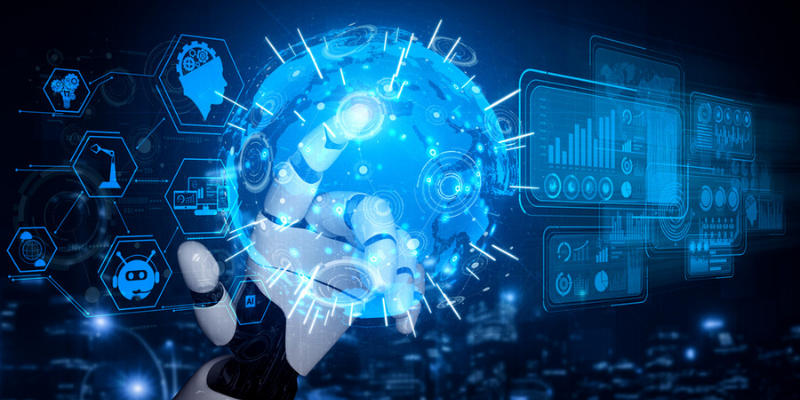How artificial intelligence and data analytics can help businesses thrive
AI has a huge scope of disruption and transformation in areas like healthcare and education, and many others.
Amid the constant disruption from unlikely competitors and changes in the industry occurring in faster and shorter cycles, time to market is constantly shrinking. To run a business and navigating this complexity in the present day and age, managers need relevant information and insights that can help understand the intended target audience, and their needs and preferences.
Thanks to the availability of multiple sources of market and customer data, analytics and artificial intelligence can be used to effectively respond to market dynamics, and drive revenue, profitability, and customer satisfaction. These new technologies are no longer a privilege for tech firms. An increasing number of companies are leveraging these tools to steer through unsettled waters and enhance their performance.
A few years ago, AI technology was being mostly used by early adopters. Any new technology typically faces a “chasm” in going from early adopters to the majority. With the pandemic and the inevitability of transformation, AI technology has “flown” over this chasm, entered the mainstream, and is now getting industrialised within companies.
There are several ways in which businesses can use AI and analytics to spur growth:
Customer monetisation
Analytics can be extensively leveraged to personalise the customer experience. The most optimum products and services can be offered at the right price and the experience can be optimised to the individual customers’ liking.
The impact of this work is amplified in the digital domain. Every interaction is being recorded which generates massive amounts of data, and this can be used to personalise the experience in real-time. All this leads to higher customer satisfaction and maximisation of revenue.
Optimised marketing spends
Companies spend a lot of money on marketing through various means and channels. It has been often said by CMOs – “I waste half the money I spend on advertising, I just don’t know which half.” Analytics and machine learning models can assess the marketing spend across channels to identify the optimum mix to drive revenue and brand equity. This can be fine-tuned by various customer segments and types.
Competitive advantage
Enterprises can collate data from within their organisation and the industry to have an upper hand in understanding the competition and market trends. By combining the information generated, organisations can get constant insights into sales, potential gaps in the market, and product improvement.
These insights enable the teams to work in collaboration, provide real-time responses to competitive tactics, and achieve better outcomes.
Optimisation of the supply chain
Analytics can be used to ensure that supply keeps up with the business with optimised costs, especially with the demands of digital business models which need short-time deliveries to customers.
The future of AI
It is impossible to anticipate every use case of AI in the future. Just like it happened with the internet, AI-based innovation will throw up use cases that we cannot fathom today.
Businesses will be able to leverage AI to answer complex questions around growth opportunities like new markets and product lines, and make multifarious decisions that are scientific and rooted in data.
Some exciting use cases are where the realm of AI is going beyond structured data to understand and analyse all sorts of unstructured data like images, audio, text, and video.
Using these techniques, AI is now even being used to optimise creativity and to help marketers decide what kind of creativity will appeal to specific audiences for specific campaign objectives.
However, the one key area where AI technology will impact the most is in disrupting entire industries and creating new business models. For example, what Tesla has done to the auto industry and what Netflix has done to the entertainment industry.
AI has a huge scope of disruption and transformation in areas like healthcare and education, and many others. All this is going to lead to transformational business opportunities for existing companies and new entrepreneurs.
Edited by Kanishk Singh
(Disclaimer: The views and opinions expressed in this article are those of the author and do not necessarily reflect the views of YourStory.)












